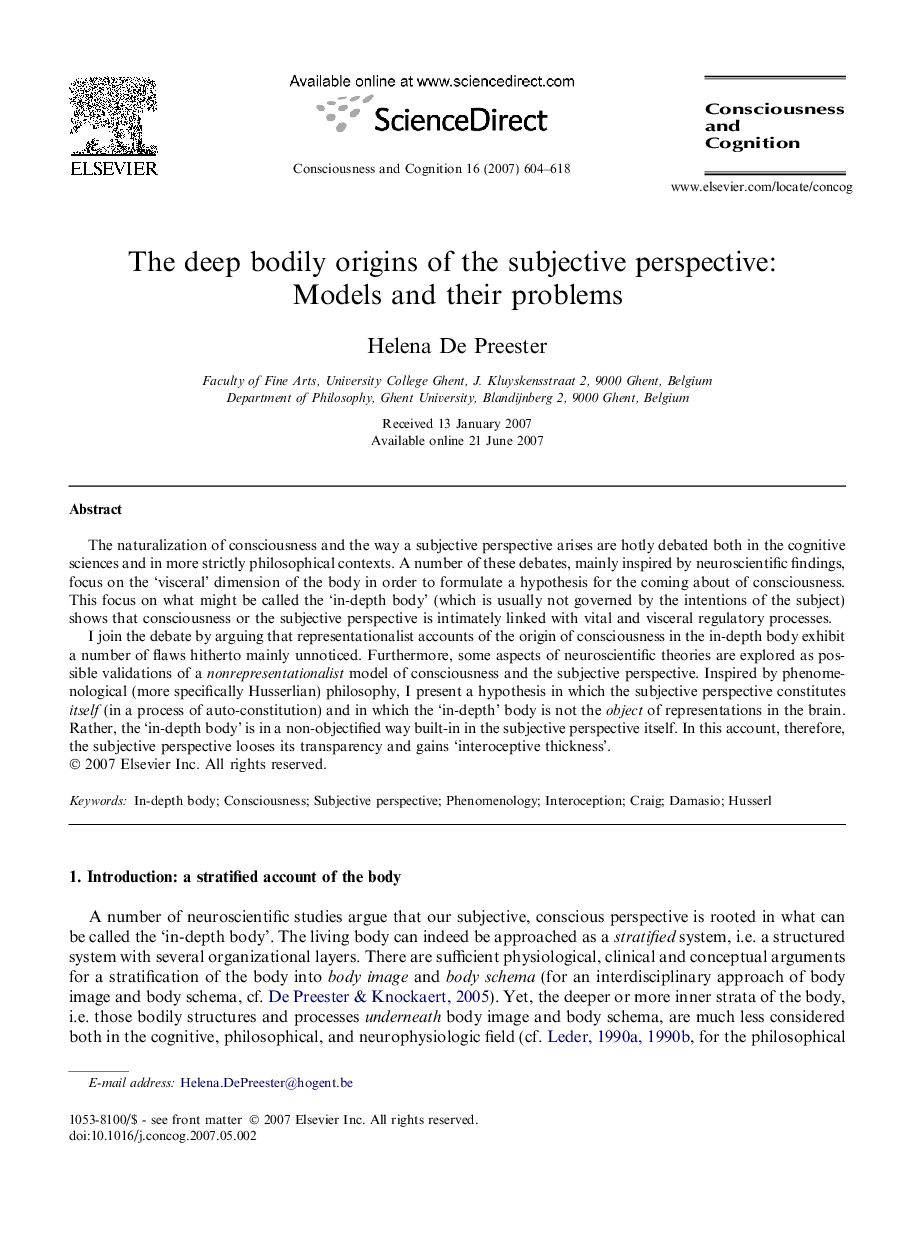| Article ID | Journal | Published Year | Pages | File Type |
|---|---|---|---|---|
| 927768 | Consciousness and Cognition | 2007 | 15 Pages |
The naturalization of consciousness and the way a subjective perspective arises are hotly debated both in the cognitive sciences and in more strictly philosophical contexts. A number of these debates, mainly inspired by neuroscientific findings, focus on the ‘visceral’ dimension of the body in order to formulate a hypothesis for the coming about of consciousness. This focus on what might be called the ‘in-depth body’ (which is usually not governed by the intentions of the subject) shows that consciousness or the subjective perspective is intimately linked with vital and visceral regulatory processes.I join the debate by arguing that representationalist accounts of the origin of consciousness in the in-depth body exhibit a number of flaws hitherto mainly unnoticed. Furthermore, some aspects of neuroscientific theories are explored as possible validations of a nonrepresentationalist model of consciousness and the subjective perspective. Inspired by phenomenological (more specifically Husserlian) philosophy, I present a hypothesis in which the subjective perspective constitutes itself (in a process of auto-constitution) and in which the ‘in-depth’ body is not the object of representations in the brain. Rather, the ‘in-depth body’ is in a non-objectified way built-in in the subjective perspective itself. In this account, therefore, the subjective perspective looses its transparency and gains ‘interoceptive thickness’.
